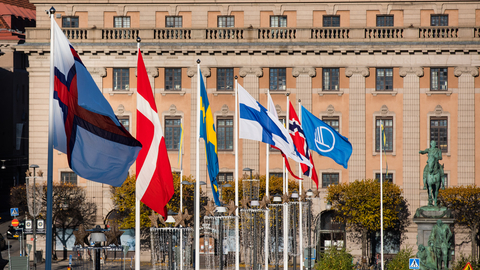
News
Regulations
Sustainability
Nordic ministers call for reduction of land-based aquaculture waste
August 2, 2023 By Nestor Arellano
 (Image: Nordic Council of Ministers)
(Image: Nordic Council of Ministers) An intergovernmental forum of Nordic ministers has recommended the reduction of land-based aquaculture waste streams. The call made by the Nordic Council of Ministers is the gist of council’s Best Available Techniques (BAT) report on the reduction and reuse of emissions of land-based aquaculture operations in the region.
“This report focuses on the reuse of waste streams, but it is easier and cheaper to reduce the streams rather than attempt to reuse or recycle them,” according to the ministers.
Apart from discussing the current state of Nordic aquaculture, including policy specific to land-based production, the report also talks about the techniques to reduce, reuse, and valorize the major emission types from land-based aquaculture.
The information within the report is of use to a wide number of stakeholders including operators, policymakers, environmental authorities, investors, and entrepreneurs.
The group warned that uncontrolled discharge of sludge can cause environmental damage. Contaminants such antibiotics, heavy metals, and solids from land-based aquaculture facilities can leak into natural water sources.
The Copenhagen-based group said that simple steps such as appropriate planning, record-keeping, site selection, equipment choice, and farm practices can reduce the production of all forms of waste.
The ministers also noted that the European Union has no dedicated legal framework for the regulation of aquaculture. “As the regulation of wastes and emissions from aquaculture is mostly through the legislation of individual nations, it differs across Nordic counties.”
“Environmental legislation such as the Water Framework Directive and the Waste Framework Directive are relevant but only indirectly, and aquaculture does not fall within the scope of the newly revised Industrial Emissions Directive,” the report said. “The Faroe Islands, Norway, and Iceland are not member states but implement some EU legislations, particularly those relating to food safety and the use of chemical therapeutants.”
Print this page